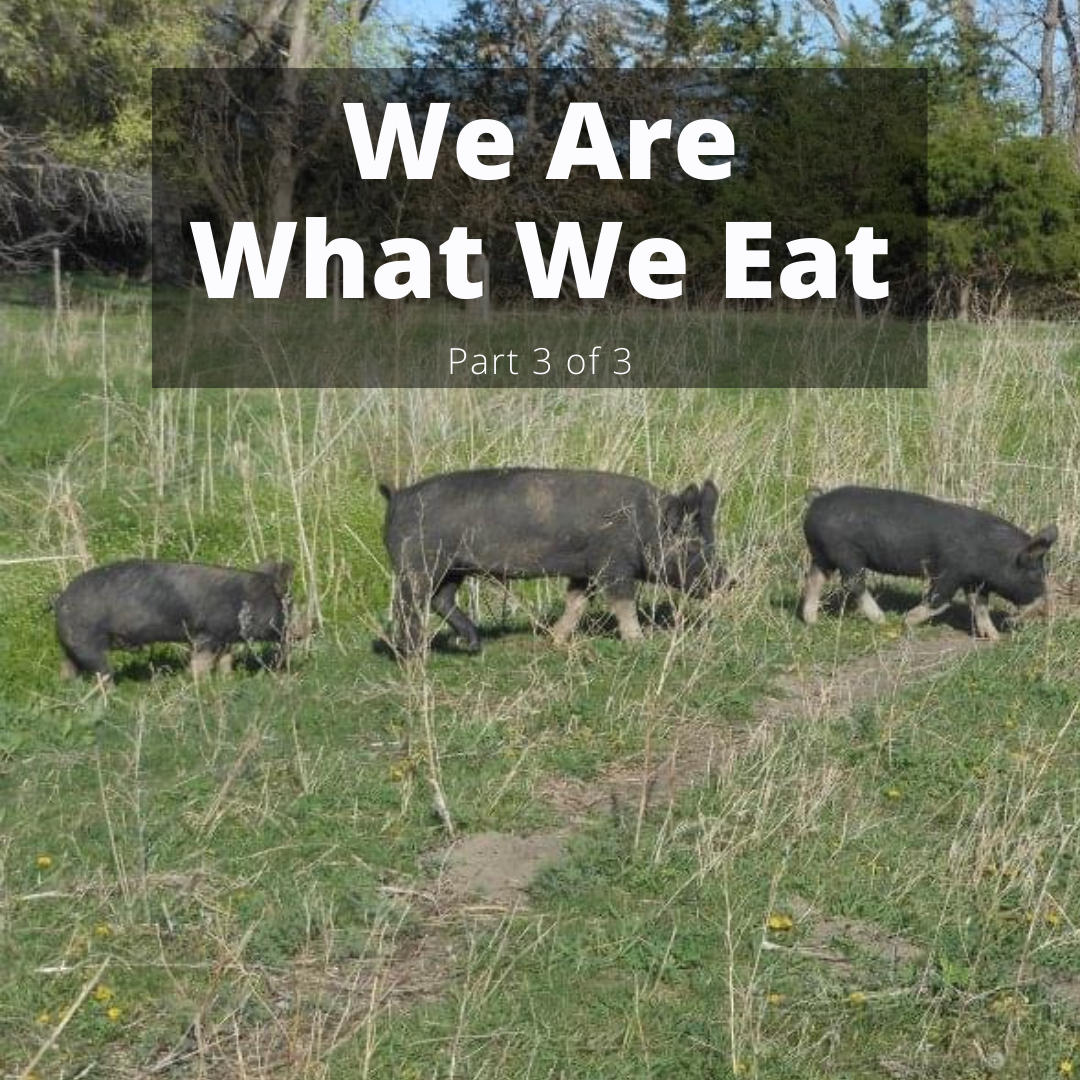
We Are What We Eat - Part 3 of 3

We Are What We Eat - Part 3
Sure, we’ve all heard it; pigs eat everything. But do we really want them to?
First and foremost, being raised on open pasture ensures all of our pork is raised in a stress free environment. While this isn’t directly considered ‘feed’, it has a direct correlation with the quality of the pork you purchase. Different stress factors can cause pork to be pale, soft, exudative (PSE) or dark, firm, dry (DRD), which could mean tough and flavorless meat or a meat that spoils more rapidly. None of this being desirable.
Feeding pigs is a science in and of itself. It is a balance of protein, carbohydrates, fiber, fats and oils. It’s important to know that pigs are omnivores. Like chickens, they eat food derived from both plant and animal sources. They rely heavily on the energy sourced from their feed and the amount of energy varies during different seasons and different stages of life. During cold weather, pigs use more energy keeping themselves warm, which means they eat more and move less to conserve their energy. The quality of the feed is rated based off of its gross energy (GE) and digestible energy (DE). The digestible energy is what any pig farmer wants to focus on, which is the the amount of energy in the feed minus the amount of energy lost in feces.
All of our pigs, raised at Clear Creek Organic Farm, are run on grass during their grazing period through the summer months. During the winter months they are provided cover and extra bedding, as well as supplemented with organic non-GMO peas, oats and limited corn due to the extra required energy.
Year round our pigs are fed barley that has been sprouted in whey from the farm’s dairy. This is not only palatable for the pigs, it also causes a fermentation, which breaks the barley down, making it more digestible and provides a higher nutritional value and absorption percentage than if it was dry. Using the whey actually gives the meat a sweeter taste and overall better quality. Other supplemental feed, depending on the stage of life and time of year, consists of local organic vegetables like peas and turnips, straight whey derived from cheese, skim milk, buttermilk, and green oats. Oats are high in carbohydrates and contain silica, which is a mineral that plays an essential role in delivering the nutrients to our bodies.
Most notably, we never feed our pigs (or any of our animals) growth supplements, hormones, or soy and they are never given vaccines or antibiotics. Soy has been shown to be related to a number of problems in today’s youth and linked to problems with our thyroids, digestive systems and hormone levels. So we ensure that it is never in any of the supplemental feed of our animals.
With Primal Pastures pork, you can expect a highly nutritious, darker, well-marbled meat, with flavor that is bold and hearty. To recap, our pigs are:
- Pasture raised
- Organic non-GMO grains
- Local organic vegetables
- No soy
- No growth supplements
- No hormones
- No antibiotics
- No vaccines

